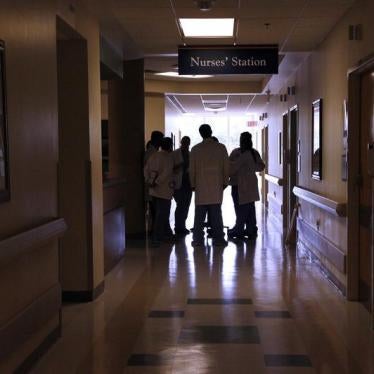The Gender Recognition Act, which Gov. Jerry Brown signed into law on Oct. 15, puts California in the lead nationally in legal recognition for nonbinary genders. The bill opens the door for additional regulation that will protect the hundreds of intersex babies born in the state each year.
The new law allows the designation of a third gender on birth certificates. It notes that “‘intersex’ is an umbrella term used to describe natural bodily variations, which can include external genitalia, internal sex organs, chromosomes, or hormonal differences that transcend typical ideas of male and female” and that as many as 1.7 percent of people have an intersex trait.
Once called “hermaphrodites” — a term now considered pejorative and outdated — intersex people are not rare, although their medical needs are widely misunderstood. Based on a medical theory popularized in the 1960s at Johns Hopkins, a small subset of doctors continue to perform surgery on intersex children — often in infancy — with the stated aim of making it easier for them to grow up “normal.” But as clinical data and our recent research for Human Rights Watch showed, the results are often catastrophic, the supposed benefits are largely unproven, and these babies are usually born perfectly healthy, meaning there are rarely urgent health considerations requiring immediate, irreversible intervention.
One of the many risks of surgery is assigning the wrong sex, which the new California law addresses by allowing people to change their birth certificates without undergoing any medical procedures.
But there are other risks, too — including incontinence, scarring, lack of sensation, and psychological trauma. Nerves that are severed cannot regrow, scar tissue can limit options for future surgery, and the removal of gonads in an infant means that the child requires lifelong hormone replacement therapy to grow and stay healthy.
Patient advocates have worked with the medical community for 25 years to develop standards of care — but the medical establishment, despite a decades-long controversy and some brave physician voices, has by and large failed to regulate the practice. Gender clinics in California and around the country understand that transgender children often greatly benefit from counseling prior to reversible interventions, only offering surgery as an option when they come of age. But in many cases, these same clinics are conducting sex assignment surgery on intersex children before they can even speak or stand.
California’s new law reflects this reality, noting that “some children born with intersex traits have been subjected to involuntary and medically unnecessary surgical procedures in infancy in an attempt to erase aspects of their natural bodies, causing significant physical and psychological harm.”
The next step is for authorities to step in and draw a hard line, with regulations, so that absent medical necessity, no surgery on the gonads, internal, or external sex organs of an intersex child will be performed until that person is old enough to understand the risks and benefits, and provide informed consent. Some advocates have argued that existing federal and state laws banning female genital mutilation, or statutes forbidding sterilization of a minor without demonstrated medical necessity, could be used to regulate some of these surgeries. There are also questions of why insurers are paying for procedures that have no proven medical benefits, and that U.N. human rights experts say amounts in some cases to a form of ill-treatment or torture.
U.N. child and health-rights experts, the World Health Organization, Amnesty International, Human Rights Watch, Physicians for Human Rights, major American lesbian, gay, bisexual and transgender legal groups, three former U.S. surgeons-general, the American Medical Association Board of Trustees, and the largest U.S. support group for intersex children have all called for an end to medically unnecessary nonconsensual surgery on intersex children.
California has taken a positive step by introducing a third option on birth certificates. The authorities should take the next obvious step and guarantee intersex children the chance to grow unharmed by those who are entrusted with keeping them healthy.








